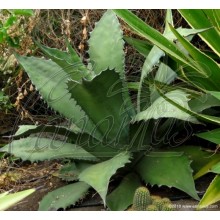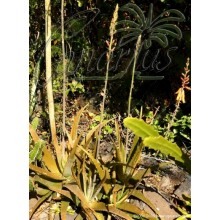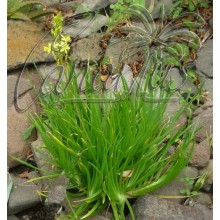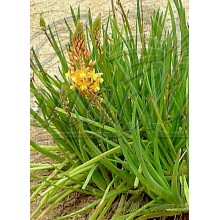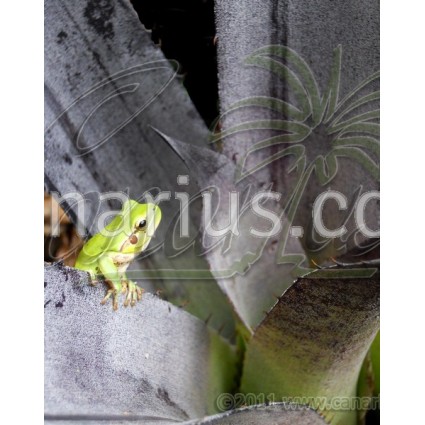 Agrandir l'image
Agrandir l'image
Hohenbergia leopoldo-horstii
A black plant! This outstanding bromeliad for collectors grows on hot rocky mountains in Bahia, Brazil. Rosettes are almost black. The leaf colour is very dark purple, coated with silvery fuzz but it turns really black with age.
Nouveau
AVAILABLE IN SPRING - Hohenbergia leopoldo-horstii is an outstanding exotic for collectors described in 1991 from Bahia, in NE Brazil. This bromeliad grows on hot rocky mountains at about 1000 m elevation. Rosettes are almost black. The leaf colour is very dark purple, coated with silvery fuzz but they turn really black as they age. The shape is unusual by itself and the whole plant looks like a "giant black artichoke". It blooms in winter with a long tall inflorescence.
Grow this species in full sun in order to achieve the best dark and compact growth. It grows faster in hot temperatures. Keep above 6 C in winter.
We offer a large sized 30-40 cm (12-16 ") rooted pup.
Glossy green, soft leaved succulent Dyckia. Dyckia encholirioides is a variable species native to the coastal areas of Southern Brazil.
We offer one bare-rooted plant of Dyckia encholirioides, of 9-14 cm. We ship it worldwide.
Visit THIS LINK and see pictures of our plants on the packing desk and learn more about what we ship, including some bromeliads.
Visit our Bromeliad Section in the Web Shop and see which plants are now available for sale. Visit also the Bromeliad Section in our Blog and learn more about our bromeliads.
| Cultivation | Protégée |
| Origine de la plante | Asia |
| Présentation | Racine nue |
| Famille botanique | Bromeliaceae |
| Lumière | Soleil |
| Soins | Pot |
| Forme | Vivaces |

















